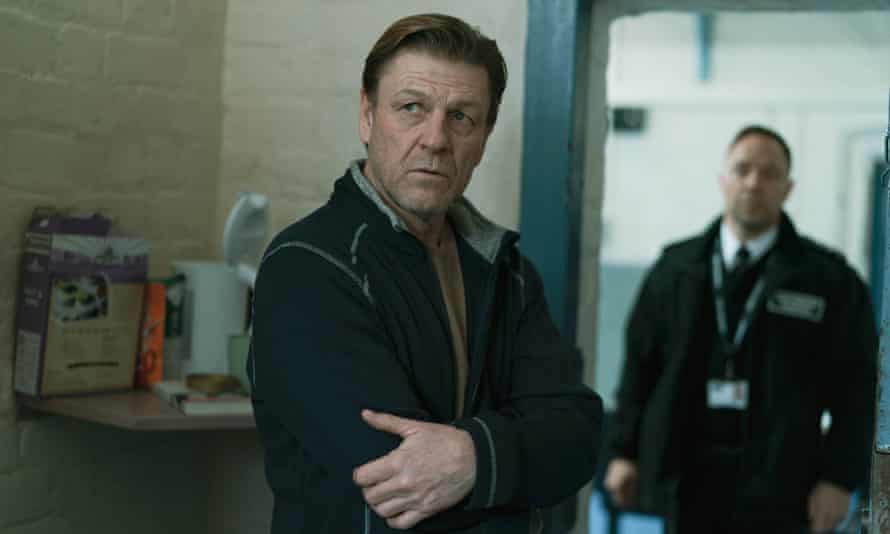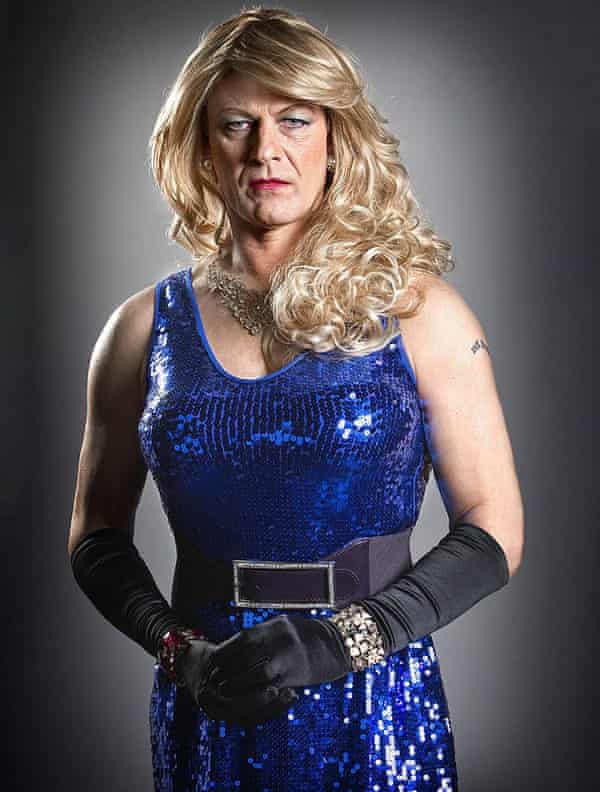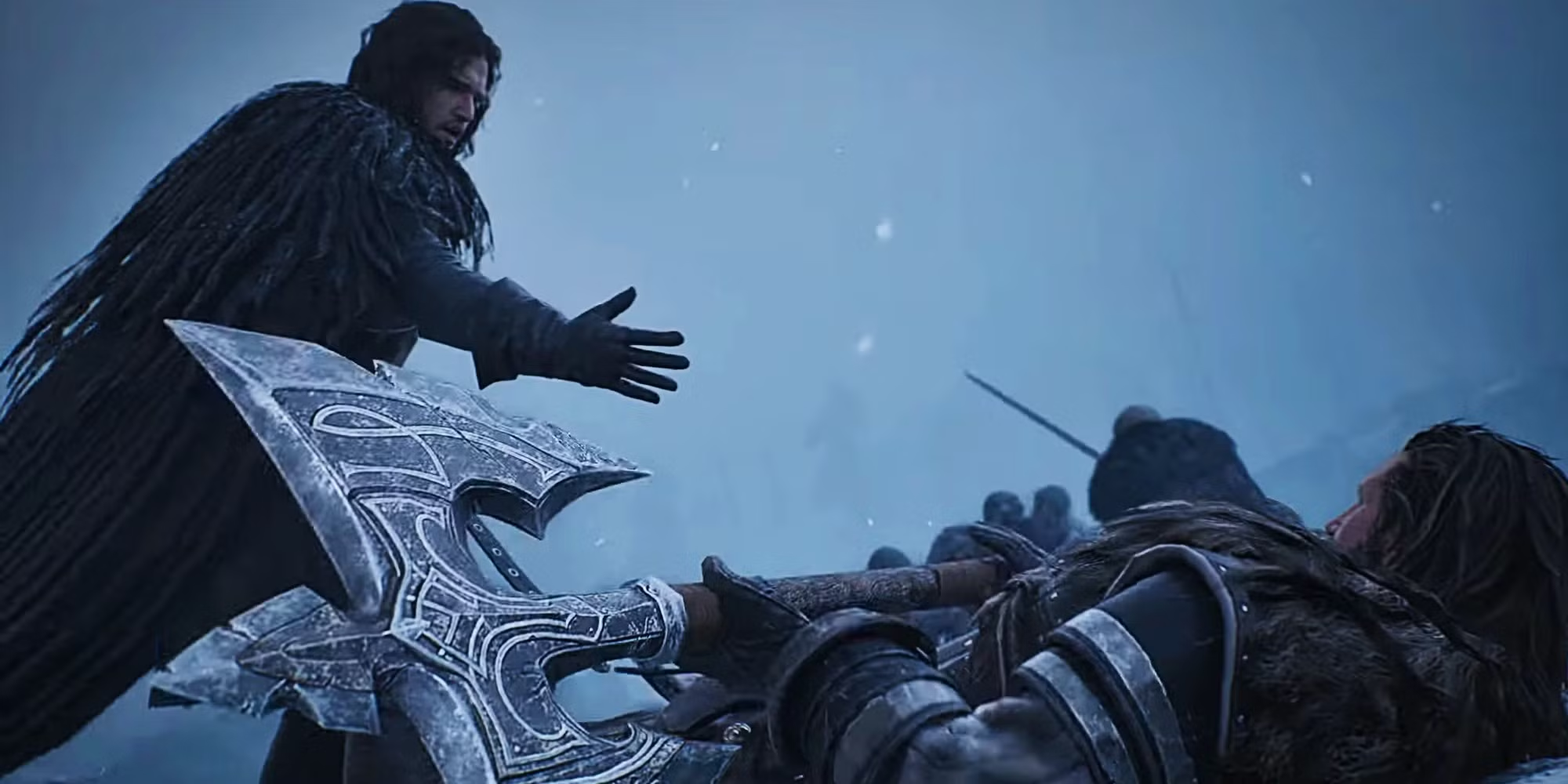Across three Sunday nights last summer, Sean Bean was remarkable. BBC One’s Time saw him play a teacher jailed for killing someone while drunk-driving. With Jimmy McGovern’s script often leaving him silent and alone in his cell, he painted an astonishingly affecting portrait of the regret and terror of a previously respected professional banged up with veteran criminals – and he frequently did so using expressions alone.
How is it to try to grab the audience entirely through looks? “As you get older, it’s sometimes a bit easier!” says Bean, 62, with a laugh. “When I started out, I used to count up how many lines I had and want some more. Now, it’s: ‘Oh, fuck, do I have to remember all that?’ So I don’t mind silence.”
Is it not technically harder to convey everything facially, though? “Yeah, it is,” says Bean. “But if the character is alone, it’s about trying to think what they are thinking. You can draw on situations in which you have felt alone, or sad, or nervous. That can be uncomfortable, but it gets you to the truth.”
As well as fewer lines to learn, Time also allowed Bean to reach the makeup trailer later. As a leading man, his time before shooting is usually spent trying to look as good as possible. Here, he needed to look rough.
“It’s not as if I didn’t have to do anything. I shaved each day but aimed to get the effect of someone using a cheap razor in a little cracked mirror in their cell,” he says. “You do have to wear some makeup or you look a different texture from everyone else. But I put on the bare minimum, nothing too flattering. You want to look like someone who’s exhausted and in shock. That wasn’t too difficult some mornings!”
Bean deliberately chose not to speak to any prisoners as part of his preparation for playing Mark Cobden – who is often the only person on his wing experiencing incarceration for the first time. “I wanted the locations – the cells, corridors, exercise yard – to be new and shocking to me, as they are to him. I wanted just to react to what was around me,” he says.

The drama intercuts the experiences of Cobden and Eric McNally, his supervising prison officer, played by Stephen Graham. Their scenes together are acting as grand slam final tennis, each participant judging whether to match the pace of the other player or change it. Watching Time called to mind theatrical experiments in which actors have swapped the main parts in a play on alternate nights – the king and Bolingbroke in Shakespeare’s Richard II, the brothers in Sam Shepard’s True West – and I fantasised about seeing the drama with Bean as the prison officer and Graham as the inmate. Was the casting ever up for discussion? “It was always me for Mark and him for Eric. But it would be really interesting. You should ask Jimmy about remaking it that way.”
Four years ago, in another McGovern drama, Broken, Bean played Father Michael Kerrigan, a Merseyside Catholic priest forced to double as a sort of social worker because of state and council cuts. Time and Broken are linked by Mark and Michael having been baptised into the same faith: Michael is a Catholic believer who struggles with doubts, while Mark has lost his faith but is tempted by a prison chaplain to lapse from atheism.
Bean, who grew up in a practising Catholic family in Sheffield but was deemed “too out there” as a child to be encouraged towards the priesthood (as McGovern was), says: “The church offers Mark a lifeline. Jimmy McGovern claims not to believe in religion, but Catholicism is a thread in his work. In Time and Broken, there’s a tension between what the characters say they believe or don’t believe and what they actually think.”
Where Father Michael is seen by society as a good guy and Mark Cobden as a bad man, the truth is far more complex. “They’re both very self-critical, and a mix of fallibilities and good qualities,” says Bean. “That ambiguity is what makes Jimmy’s characters so rich. And we’re all like that, aren’t we? We all like to think we have mostly good bits with a few bad bits – but others may think we have more downs than ups.”
Time was his third primetime BBC collaboration with McGovern. Before Broken, there was 2012’s Tracie’s Story, which gave Bean his boldest screen role. Known as an action actor – the titular 19th-century soldier in ITV’s Sharpe, Ned Stark in Game of Thrones – he played, in blond wig and false breasts, Tracie, the trans alter ego of an English teacher.

There are increasing calls for authentic casting, in which the identities of actor and character match. But for McGovern alone, Bean has played a priest, a prisoner and a transexual, none of which he has been. Would he defend pretence?
“I think so. I come from a generation that started in repertory theatre, playing a different role each week. The aim was to play as many parts as possible. Whereas there’s a tendency now to argue that characters can only be played by someone like them,” says Bean. “I think that is restrictive and counterproductive. We risk getting into a situation where drama is dictated more by which boxes are ticked than the story being told. I often think that, if I did Tracie’s Story today, there’d be an uproar. I have a feeling it would be questioned and wouldn’t even be made, but it’s one of the roles I’m proudest of. It seems such a shame if actors can’t play a range of parts.”
While in Time, Broken and Tracie’s Story, Bean was unable to draw on personal experience, the four-part BBC drama he is shooting with Nicola Walker – written and directed by Stefan Golaszewski, who made the BBC Two hit Mum – is called Marriage. Is it painful or useful that Bean is currently on his fifth?
“Well,” he laughs, “the show is about a longterm, 27-year marriage, which isn’t something I know about.” His lengthiest stretch of matrimony so far is seven years. “It’s about the small things that happen in a marriage, how you stay together. There are really few words in this. It’s all in the silences and pauses. So it’s another very different shift for me, which is what I like.”




















![[Book Review] The Blade Itself (The First Law Trilogy) by Joe Abercrombie](https://bendthekneegot.com/wp-content/uploads/2018/01/1516047103_maxresdefault-218x150.jpg)
















